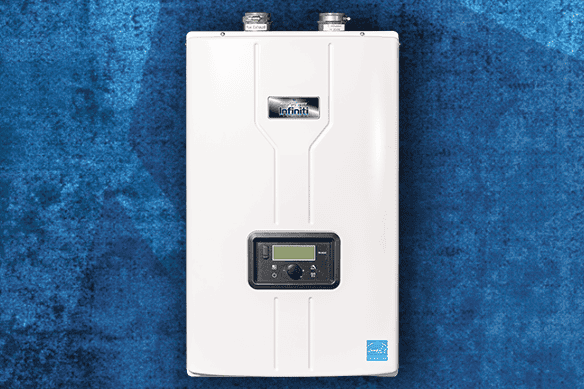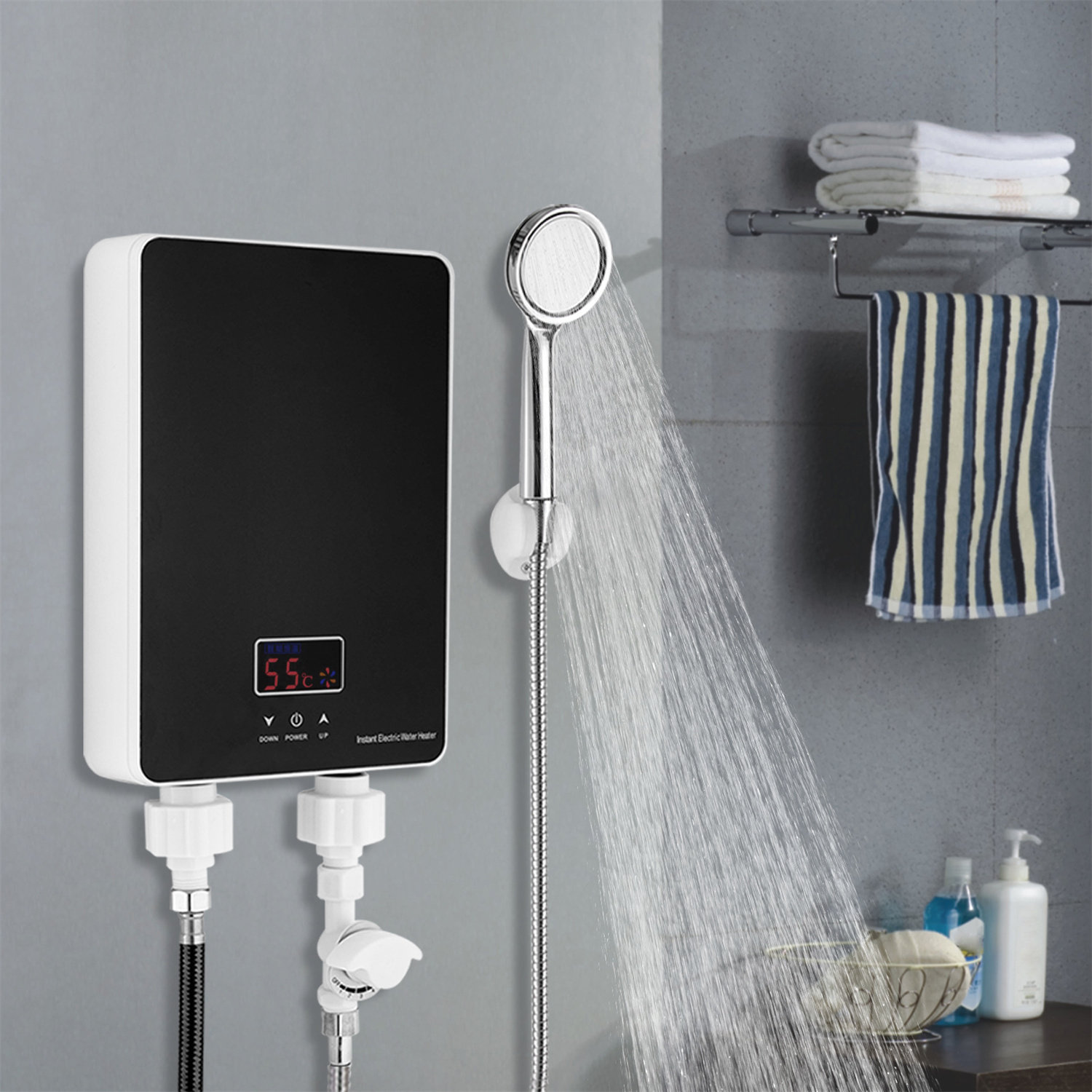Why Smart Water Heaters Grant Significant Benefits
Why Smart Water Heaters Grant Significant Benefits
Blog Article
This article down below on the subject of Six Benefits of a Tankless Hot Water Heater is indeed interesting. Don't skip it.

In a world where benefit and performance preponderate, it's not a surprise that house owners are regularly in search of smarter ways to manage their home's power usage and convenience. One innovation that has gradually gotten popularity is the tankless water heater. Yet just what makes these systems stand apart from the traditional tank-based models a lot of us grew up with? Let's dive in and discover the benefits of tankless water heaters, aiding you choose if it's time to make the button in your house.
Introduction
Picture this: you step into the shower after a long day, anticipating a calming waterfall of warm water, just to be welcomed by icy droplets due to the fact that the last individual utilized all of it up. Audio acquainted? Typical hot water heater keep a set quantity of hot water, meaning you go to the grace of that container's supply. Tankless systems, on the other hand, heat water as needed. No more going out mid-shower, say goodbye to wrestling with timetables simply to ensure warm water is readily available.
Understanding Tankless Water Heaters
What Are Tankless Water Heaters?
Tankless water heaters, occasionally known as on-demand or instantaneous water heaters, give warm water just as it's needed. Rather than storing gallons of pre-heated water, these devices kick into activity the minute you activate the faucet. Water goes through a warmth exchanger, warming up in real-time, indicating you obtain an undisturbed circulation of warm water without the demand for a huge tank sitting idly by.
Just how Do They Differ from Typical Equipments?
Standard heating systems hold a reservoir of hot water, using power to maintain that tank at a regular temperature level. Tankless systems get rid of the standing supply, minimizing lost energy and the cumbersome footprint of a large cylinder. Basically, you're updating from a "stockpile" frame of mind to a "made-to-order" method.
Typical Kinds Of Tankless Units
Tankless hot water heater normally come in 2 ranges: gas and electric. Gas designs often tend to deliver higher flow rates, ideal for larger houses, while electrical designs typically offer smaller homes and are typically much easier to set up. Furthermore, some systems are made for point-of-use (offering one fixture) while others can take care of the entire home's hot water needs.
Trick Advantages of Tankless Hot Water Heater
Power Effectiveness and Price Cost Savings
Say goodbye to heating up a titan tank's well worth of water and keeping it cozy throughout the day. Tankless heating systems decrease standby energy losses, which can reduce energy bills. While the first cost might be higher, the lasting savings often validate the financial investment.
3. Space-Saving Style
If your home is short on storage, eliminating the cumbersome storage tank liberates important area. Tankless devices are compact and can commonly be mounted on walls, stashed in edges, or set up in limited utility wardrobes without grabbing all of the whole area.
4. Longer Lifespan
A well-maintained tankless hot water heater can outlive its tank-based relative. Typical tanks could last 10-15 years, while tankless models can maintain downing along for 20 years or even more, making them a solid investment over time.
1. Limitless Warm Water Supply
Ever had to set up showers so everyone obtains their reasonable share of hot water? With tankless, that comes to be a thing of the past. As long as the heating unit's flow ability isn't gone beyond, you can take back-to-back showers without becoming a popsicle.
5. Improved Water High Quality
Saving water in a storage tank can often cause sediment build-up or a somewhat "off" taste. With tankless systems, fresh water is heated up on the spot, lowering the possibilities of debris accumulation and possibly supplying cleaner-tasting water.
Factors to consider Prior To Switching
Though the advantages are engaging, it's important to consider a couple of factors before totally devoting.
Evaluating Your Home's Water Usage Patterns
If your family at the same time utilizes several fixtures with high hot water demand, make sure the unit's circulation price satisfies your demands. Knowing your usage patterns helps you select the ideal dimension and kind of tankless heating unit.
Maintenance and Treatment Tips
Tankless systems are fairly reduced maintenance, yet they aren't set-it-and-forget-it home appliances.
Normal Cleaning and Descaling
Difficult water minerals can accumulate in the heat exchanger, influencing performance. Regular descaling (often recommended every year) maintains the unit going for peak performance.
Annual Expert Examinations
A yearly checkup from a professional makes sure small problems are captured early. They'll assess the unit's performance, search for leaks, and help preserve ideal effectiveness.
Preliminary Investment Costs
Tankless heaters usually include a higher upfront price tag. Between the device itself and prospective installment alterations, the first expense may give you sticker shock. Yet keep in mind to view it as a long-lasting investment.
Installation Needs
Relying on your home's framework, you may require extra electric capacity or gas line upgrades. Guarantee you understand the installment requirements and seek advice from an expert to prevent shocks.
Guaranteeing Appropriate Ventilation
For gas designs, correct air flow is essential to safely get rid of exhaust gases. See to it venting systems are clean and properly set up to avoid any kind of prospective safety dangers.
Comparing Different Brands and Versions
Not all tankless hot water heater are produced equivalent.
Researching Dependable Suppliers
Search for credible brands with a background of generating high quality units. A trustworthy supplier commonly supplies better customer assistance and longer guarantees.
Installation: Do It Yourself or Professional?
While some house owners relish tackling jobs themselves, tankless installment might not be the most effective time to break out the toolbox.
Benefits and drawbacks of Do It Yourself Installation
A DIY set up can conserve money, however it features risks. Incorrect installment can bring about inefficiency or safety worries. If you come in handy and have experience, it could be viable-- yet wage care.
Reviewing Reviews and Customer Responses
Customer testimonials and comments from neighbors or friends who have actually gone tankless can offer valuable insights. Sometimes, real-life experiences can be extra informing than marketing sales brochures.
When to Call an Expert Plumber
For most, calling a pro guarantees everything's done appropriately. A specialist plumbing technician recognizes regional codes, sizing requirements, and airing vent parameters, reducing the threat of incidents.
Maximizing Performance
You've bought a tankless unit-- currently optimize its effectiveness.
Optimum Temperature Setups
The majority of people set their systems between 120-140 F. Changing the temperature level can improve comfort and cost savings. Experiment to locate a sweet spot that doesn't squander energy.
Coupling With Low-Flow Fixtures
Wish to extend your device's capacities? Take into consideration setting up low-flow showerheads and faucets. They reduce water use, enabling your tankless system to deliver a stable stream of hot water without straining.
Ecological Influence
Tankless hot water heater align with greener living objectives.
Lowered Carbon Footprint
By utilizing less power and only home heating water as needed, tankless systems can reduce your home's carbon footprint, lowering your environmental impact.
Saving Natural Resources
Much less energy intake and less thrown away hot water convert into less natural resources being used, an ecological win-win.
Who Benefits The Majority Of from Tankless Heaters?
The appeal of tankless heating systems is that they can suit a range of houses.
Huge Families vs. Single Residents
Big households may enjoy the limitless warm water supply, while solitary residents value the energy financial savings from not warming a whole storage tank for just someone's morning shower.
Home Owners with Limited Space
If your home is short on square footage, shedding the cumbersome storage tank maximizes room for various other basics-- or perhaps just extra breathing space.
Eco-Conscious Consumers
Going tankless aligns with eco-friendly values, guaranteeing you're not squandering power or sources.
Future Patterns in Tankless Hot Water Heater
The globe of home devices is ever-evolving, and tankless hot water heater are no exception.
Developments in Technology
R&D is constantly enhancing warm exchangers, making systems more reliable and durable. Future designs may be also quieter, more compact, and much better fit for differing environments.
Smart Home Assimilation
Think of adjusting your water heater's temperature via an application or receiving maintenance alerts on your phone. As smart home technology advances, we'll see more connectivity and convenience.
Conclusion
Picking a tankless hot water heater is greater than just upgrading your home's hot water system; it's buying long-lasting convenience, power effectiveness, and a greener lifestyle. By considering your house's water use, being mindful of installment demands, and dedicating to regular upkeep, you can take pleasure in a stable stream of warm water without the baggage of a cumbersome storage tank. As innovation advances, you can eagerly anticipate even smarter, much more effective tankless options that not just make your life simpler however likewise benefit the world.
Pros and Cons of Tankless Water Heaters
Tankless Water Heater Pros
Saves Energy: Simply put, you re spending less energy to create hot water, so your total carbon footprint goes down, not to mention your bills. Lasts Longer Than Storage Tanks: Storage tank units need to be replaced every 15 years or so. But tankless units? They can last for 30 years before they give out on you. Constant Hot Water: Need to take a shower and don t want the water running cold? Awesome it won t. The water will stay hot the entire time because it creates hot water on demand. Saves You Money: Less water usage equals less money. Beyond that, you re not paying to keep water hot 24/7. Those savings add up quickly. Better for the Environment: Less water waste is better for everyone. It saves you money, but it s also environmentally conscious at the same time. Tankless Water Heater Cons
It Can Take a Minute: Depending on your specific unit and its placement, it can take anywhere from 10 seconds to 2 minutes to fully heat up. Because there s no storage tank, it heats water as you need it. Upfront Purchase Price: While we talked about their longevity, there s sticker shock when you look at brand-new tankless units to install. It pays for itself, but it s still a big chunk of change at first. Has its Limits: If you run multiple appliances at once, such as the dishwasher, washing machine, and maybe you take a shower at the same time, there might not be enough hot water. https://www.airsouthnow.com/blog/water-heater-service/pros-and-cons-of-tankless-water-heaters/

I have been very fascinated by and I am hoping you enjoyed reading our blog post. Are you aware of anybody else who is serious about Pros and Cons of Tankless Water Heater? Be sure share it. I treasure your readership.
Check This Out Report this page